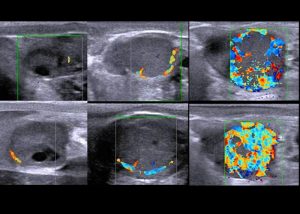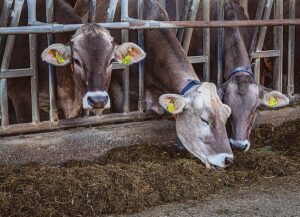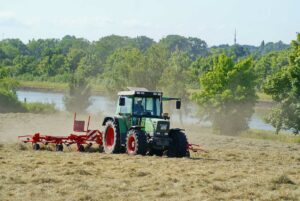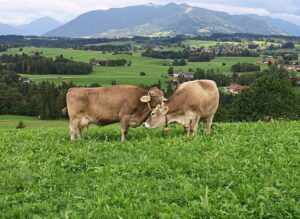Alvaro Garcia
Reducing the use of antimicrobial drugs is a concern in modern animal production. As a result, successful health interventions through the use of natural feed additives are currently explored. Vitamin dietary fortification has shown promise as potential to improve health and prevent disease. Vitamin D, for example, has shown effects from this perspective against both mastitis and metritis.
Aside from role of vitamin D in Ca and P homeostasis there are other effects however, such as its immunomodulatory role in cattle innate immune cells and mammary gland. This vitamin intervenes in physiological functions regulated by enzymatic activation and intracellular vitamin D receptors. The form supplemented however is important. Cows fed 25(OH)D3 have shown improved neutrophil function, mastitis reduction, reduced risk of retained placenta, metritis, and increased milk yield compared with cows fed just vitamin D3.
A 2020 research trial (Poindexter et al., 2020) examined these effects in 5 groups (4 treatments and 1 control) of 12 cows each that received 1 of 4 treatment. The treatments were two Vitamin D forms (vitamin D3 or 25-OH-D3) fed at two amounts each of 1 or 3 mg/d, on top of the routine supplementation of 0.5 mg of D3 daily. After 21 days of feeding, all cows on vitamin D treatments were inoculated intramammary with Streptococcus uberis. Rectal temperatures and the severity of mastitis were monitored at each milking at 0, 12, 24, 36, 48, 72, and 96 hours relative to the intramammary microbial challenge.
When metabolites of vitamin D were measured in blood serum, increasing 25-OH-D3 from 1 mg/d to 3 mg/d increased 25-OH-D in serum more effectively compared with vitamin D3. The concentration of 25-OH-D between cows was not different regardless of the supplementation level (1 mg/d or 3 mg/d). Concentrations of 25-OH-D in serum of cows receiving 25-OH-D3 however, increased by day 7 and up to day 28 and remaining stable thereafter.
Incidence of clinical mastitis was not different in cows that received either 1mg or 3mg of vitamin. Mastitis severity at 60 and 72 hours was greater in cows supplemented with 1mg compared with those receiving 3mg. The SCC and bacterial counts in milk however, increased over time but was not different between vitamin treatments.
Supplementing 25-OH-D3 lessened the severity of mastitis. It is apparent vitamin D plays a role in mammary immunity, contributing to the protection of the mammary gland from mastitis. Increased peripheral blood of a certain type of leukocyte is used as a diagnostic marker for inflammation. After the intramammary challenge with Streptococcus uberis, markers for this bacterium increased on macrophages and neutrophils in milk of the infected quarters of cows supplemented with 3mg of the vitamin D metabolite compared to those supplemented with 1mg.
These findings suggest that increased 25-OH-D3 increases the presence of leukocytes in the mammary gland following a bacterial challenge. It was speculated that increasing dietary 25-OH-D3 boosts mammary gland protection against mastitis. Cows fed 3 mg of the vitamin had delayed onset of mastitis compared with those receiving 1 mg. It was apparent that the effects of 25-OH-D3 occurs via intracellular vitamin by signaling in macrophages and neutrophils in the mammary gland.
Results of this experiment showed dietary 25-OH-D3 was much more effective in increasing the concentrations of 25-OH-D in serum compared with vitamin D. It was also concluded there was little to no benefit of feeding vitamin D3 above 1.5 mg/d (60,000 IU/d). The effects of feeding 25-OH-D3 on mammary gland immunity supported a role for vitamin D signaling in protection from mastitis.
Reference
Poindexter, M. B., Kweh, M. F., Zimpel, R., Zuniga, J., Lopera, C., Zenobi, M. G., … Nelson, C. D. 2020. Feeding supplemental 25-hydroxyvitamin D3 increases serum mineral concentrations and alters mammary immunity of lactating dairy cows. Journal of dairy science. 103(1): 805-822.
© 2020 Dairy Knowledge Center, LLC. All Rights Reserved.











